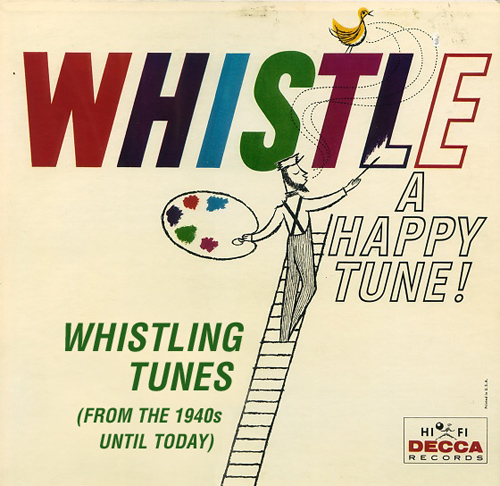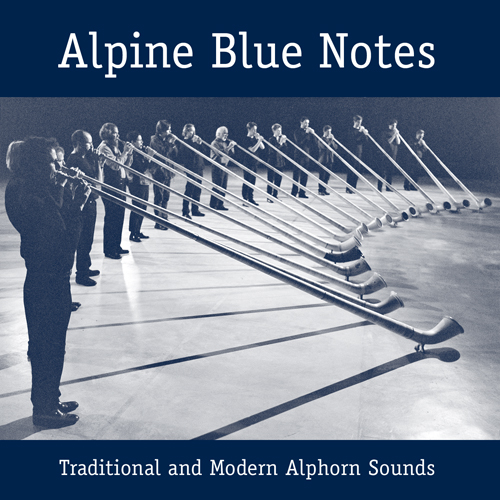Other Mixes By lanhamyodel
CD
|
Mixed Genre


CD
|
Mixed Genre


CD
|
Mixed Genre


CD
|
Theme - Alternating DJ


CD
|
Singer/Songwriter


Bestseller auf dem Plattenteller
| Artist | Song | |
| Hazy Osterwald-Sextett | Kriminal Tango, 1959 | |
| Peter Alexander | Ich zShle tSglich meine Sorgen (Heartaches by the Number) | |
| Bob Azzam | Mustafa, 1960 | |
| Jan & Kjeld | Banjo Boy, 1960 | |
| Lale Andersen | Ein Schiff wird kommen (Never On a Sunday), 1960 | |
| Caterina Valente & Silvio | Itsy Bitsy Teenie Weenie Honolulu Strandbikini, (Itsy Bitsy Teenie Weenie Yellow Polkadot Bikini), 1961 | |
| Billy Vaughn | Wheels, 1961 | |
| Connie Francis | Die Liebe ist ein seltsames Spiel, 1961 | |
| Gus Backus | Brauner BSr, Weisse Taube (Running Bear) | |
| Ralf Bendix | Babysitter Boogie (Baby Sittin' Boogie), 1961 | |
| Jan & Kjeld | Hello, Mary Lou (Hello, Mary Lou), 1961 | |
| Duanne Eddy | Pepe, 1961 | |
| Bill Ramsey | Zuckerpuppe, 1961 | |
| Gerhard Wendland | Tanze mit mir in den Morgen, 1962 | |
| Floyd Cramer | San Antonio Rose, 1962 | |
| Gus Backus | Sauerkraut Polka, 1962 | |
| Ted Herold | Sei doch mein Talismann (Good Luck Charm), 1962 | |
| Gilbert BTcaud | Et maintenant, 1962 | |
| The Waikikis | Hawaii Tatoo, 1962 | |
| Connie Francis | Paradiso, 1962 | |
| Freddy Quinn | Junge, komm bald wieder, 1962 | |
| Edith Piaf | Non, je ne regrette rien, 1960 | |
| Bob Moore | Mexico, 1962 | |
| Rex Gildo | Speedy Gonzales (Speedy Gonzales), 1962 | |
| Peter Hinnen | Siebentausend Rinder, 1963 | |
| Gitte | Ich will 'nen Cowboy als Mann, 1963 | |
| Cliff Richard | Rote Lippen Soll Man Knssen, 1964 | |
| Trini Lopez | If I Had a Hammer, 1963 | |
| Paul Kuhn | Es gibt kein Bier auf Hawaii, 1963 | |
| Al Hirt | Java, 1964 | |
Comment:
When one compares today's pop charts of Switzerland (the German-speaking part) with those of the US one will find that many US hits enter the charts in Switzerland (and other European countries), too. Superstars in America usually also are superstars on the other side of the Atlantic. The majority of the songs in the Swiss charts are in English-which is not one of Switzerland's 4 official languages.But this wasn't always so. In the early '60s the Swiss charts consisted mostly of "Schlager" (simple, sentimental or humoristic songs in German) and big band recordings. (This is also true for the two other German speaking countries in Europe, Germany and Austria.) American and British hits often were translated into German and recorded by a local artist, or, at times, by the original artist (Cliff Richard recorded many of his hits in German.)
In 1962 the Swiss charts listed roughly ten times as many songs in German than in English. (Elvis Presley, the Everly Brothers, Ricky Nelson and Pat Boone were some of the few artists that made the charts with songs in English.) But this was about to change drastically. The Beatles had their first hit in Switzerland in 1964. The Rolling Stones followed soon after, as did the Beach Boys, Mamas & the Papas, etc. In 1965 the ratio of German-language hits and English-language hits was still 2:1, but in 1966 in changed to 1:3. In 1968 there were ten times more hits in English in the Swiss Charts than in German. English-language songs have dominated the Swiss Charts ever since.
But back to this mix, which stops in 1963. Not surprisingly, a lot of the songs of that time were about love and relationships, just as they are today, but there were two other themes that were very popular: The American West (cowboys, American Indians etc, as exemplified in track 9, 25 and 26), and faraway, exotic, sunny locations (tracks 19, 20, 23). Track 29 turns the theme on its head by stating that "there is no beer on Hawaii, that's why I never want to go to Haiwaii." (This song became a classic beer-drinking song.)
1: This song about a mysterious murder in a nightclub became a Swiss classic. It is this still well-known and loved today.
3: Together with tracks 1 and 25 the only Swiss productions on this mix. Band leader and singer Bob Azzam was Egyptian, but I believe he recorded this song in Switzerland.
8: Connie Francis started her successful career in 1958 in America, but she also recorded in six different languages and was popular in Germany, Switzerland, Italy, and Japan.
9: Gus Backus, on the other hand, made his first recordings also in America, but found success in Germany where he settled and married after being stationed there during his military service. He recorded several successful German-language versions of American hits.
10: The German-language version of an American hit seldom sounds better (to my ears) than the American or English original, but here it does. Bendix's version of Buzz Clifford's "Baby Sittin' Boogie" seems much fresher than the original. No wonder this song became a classic in Germany and Switzerland.
18, 22: Due to the cultural influence of Switzerland's neighbors, the Swiss charts quite often feature songs in French and Italian, too.
23: Instrumental music was big in the early '60s, too. Bob Moore, a standup bass player in high demand in the '50s in America, picked up his trumpet in the '60s and recorded this tune that became the most-sold record in Germany in 1962 (and possibly in Switzerland, too.)
"Auf dem Plattenteller" translates into "on the turntable."
Feedback:
Nice work. Fascinating writeup, and I'm sure the music is good too. That does look like a vintage plattenteller in the pic.
I don't follow Switzerland, but I do track France. They (for various reasons) have not welcomed English the way Northern Europe did. So songs on the "charts" in France are still mostly in French, but on any week you can find several American records, usually by the likes of Gwen Stefani, Black-Eyed Peas, etc.
I don't follow Switzerland, but I do track France. They (for various reasons) have not welcomed English the way Northern Europe did. So songs on the "charts" in France are still mostly in French, but on any week you can find several American records, usually by the likes of Gwen Stefani, Black-Eyed Peas, etc.
This looks really cool. I love Kriminal Tango, Wheels, and Java... Would like to hear the rest (hint, hint).
Fascinating.
This mix is pretty awesome. Nice job.
Wow!! Wo ist Komm, Gib Mir Dein Hand? Ich hatte das leid.
Steve, the German-language recordings of the Beatles made it into the German charts, but not into the Swiss charts. The first Beatles song in the Swiss Charts was "I Want To Hold Your Hand" in April 1964, followed by "A Hard Day's Night" half a year later.
interesting mix & nice history lesson.
Niiiicceeee!!!!
Really well done
Really well done
Is there another comment that fits besides " brilliant"? Wow? Leroy Van Dyke also recorded some songs in German, most notably, "Walk on By" ...
Great stuff!
I know virtually none of this, but I am extremely fascinated!
Very interesting stuff.
Sehr gut!
This is FABULOUS!!! Cinq etoiles pour vous.
This is great, Claude. I'd love to hear this one and your notes are very interesting. I'd be interested to hear your thoughts on why English took over so quickly and so completely. Not just in Switzerland, but in so many other places as well.
Danke fnr dieses Blick in der alte Schweizer Musikszene.
Once again you've opened up an alternate universe that I never could have imagined.
PLEASE tell me there's something I can trade you for a chance to hear this!
PLEASE tell me there's something I can trade you for a chance to hear this!
Woher hast du die ganzen Infos nber die Schweizer Charts? Bei der Suche nach genaueren deutschen Daten (zum 40. Geburtstag eines Freundes) hatte ich ziemliche Probleme. Und der Mix ist natnrlich prima -auch wenn ich das, mit 3-4 Ausnahmen, alles schon habe. ;) If you're into the somewhat strange and (from a British or American pov) exotic, give this a try. It'll definitely be worth your while.


